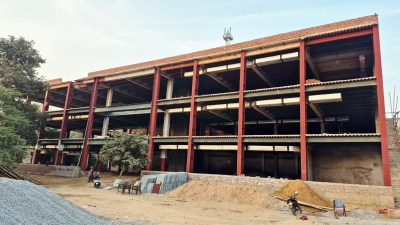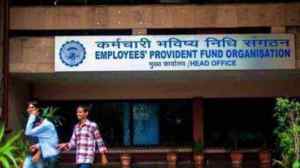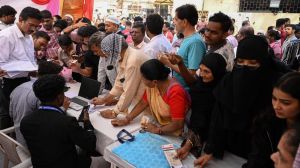Making up for lost days
An empty hall in a mosque in Nigeen,a neighbourhood in Srinagar,has turned into a school,one of the several such community schools that have come up in the troubled Valley...
On the banks of Nigeen lake in Srinagar,young boys and girls assemble every afternoon in an empty hall on the second floor of a mosque. Colourful carpets cover the floor. A blackboard,covered in a thick film of white chalk dust,hangs on a window facing the lake. In each of the four corners of the room,students sit in semi-circles as young men give them lessons in English,mathematics and science. Occasionally,they shift to face the blackboard.
As the daily cycle of violence and shutdowns are keeping children out of schools,community schools such as this one in Nigeen are possibly the only way the Valleys children can make up for their wasted school days.
The community school in Nigeen,a locality in Srinagar,was set up a month ago by young graduates of the neighbourhood. Its an informal set upno uniforms or attendance registers,no punishment for coming in late.
And the children seem to have taken well to this informal arrangement.
Shayim Farooq,11,is in class six. He is lean and shy. When the community school was set up,Shayim was among the first to join. Soon,his other friends joined in. I come here every day, says Shayim. At first,it was difficult to understand new teachers. But now,it feels good, he says as his teacher,Nimmer Qayoom,writes a note in his book. Shayim smiles and says Nimmer is his favourite teacher.
I like this school. We dont wear uniforms. Nobody makes us stand with our face to the wall or asks us to stand on one leg for coming in late, says Shayim.
While Shayim settles to a new routine,his teacher Nimmer,who teaches management at Kashmir Universitys Business School,too has had to reschedule his routine.
These days,as the Universitys lecture rooms remain locked,Nimmer joins his friends every afternoon at the mosque to teach the young students. It is difficult to keep the schools open as long as the killings continue. But we cannot afford to let the education of our children suffer, he says. There was no other alternative so we decided to teach our children ourselves. It is our responsibility.
Shayims older brother Irfan Farooq,a commerce student,is among the volunteers who set up the community school. While Irfan studies commerce through a distance education programme,he also runs a provision store in a by-lane in Nigeen. And as the shutdowns continue,Irfan says he has had to run his business from home as neighbours and customers from nearby localities come asking for provisions. He takes a break in the afternoons to help run the community school.
Nimmer and Irfan say they came up with the idea of the community school because anxious parents in their neighbourhood would always worry about their childrens lost school days.
Whenever they met,they talked about their children and schools. Education was not the only worry; children had no routine. They had all the time to waste and would spend that roaming around the locality, says Nimmer. Their energies had to be channelised better,the two young men decided.
A network of such community schools has come up across the Valley. In Mehnand,a remote village in south Kashmir,Bashir Ahmad,a 27-year-old research scholar,and some other young men have come together to set up a community school. More than 400 students from Mehand and adjoining villages attend the school that is run in two shifts every day.
In Shopian town and its adjacent areas,five community schools have come up in the last two months. More than 300 children study in these schools.
The volatile north Kashmir district of Baramulla has gone a step ahead. There are seven community schools in Baramulla town alone. In the neighboring Sopore town,community members have set up a school for higher secondary students.
These schools have no formal names nor do they advertise their presence. Usually,word gets around and parents bring their children to these schools. Teachers in the state government schools as well as those working in private schools volunteer to give lessons.
We do not charge our students anything nor do we need anyone to sponsor us, says Mohammad Habil,a student of law who teaches at a community school in Shopian. They are our children,if we do not care about them,who will?
- 01
- 02
- 03
- 04
- 05































